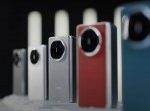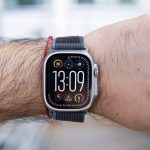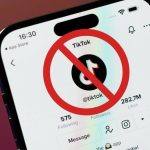More investors are joining the wave to bet on lidar, the remote sensing method that uses laser light to measure distances and has garnered ample interest from automakers in recent times. But it’s also a technology that has long been scorned by Elon Musk partly due to its once exorbitant costs.
Innovusion, a five-year-old lidar company and a supplier to Chinese electric car upstart Nio, just landed a Series B funding round of $64 million. The new proceeds boost its total investment to over $100 million, not a small amount but the startup is in a race crowded with much bigger players that have raised hundreds of millions of dollars, like Velodyne and Luminar.
Temasek, the Singaporean government’s sovereign wealth fund, led Innovusion’s latest financing round. Other investors included Bertelsmann Asia Investment Fund, Joy Capital, Nio Capital, Eight Roads Ventures, and F-Prime Capital.
Innovusion runs core development teams out of Sunnyvale, California and Suzhou, an eastern Chinese city near Shanghai that the robotaxi unicorn Momenta also calls home.
Junwei Bao, Innovusion’s co-founder and CEO, is not deterred by the industry’s existing giants. Back at Baidu where Bao oversaw sensors and onboarded computing systems for autonomous driving, he also worked on the Chinese search engine leader’s investment in Velodyne.
“They were designing things more like a college student designing in their labs,” Bao said of Velodyne.
Lidar was a niche market up until about five years ago, the founder explained, for the technology was mostly used by a small community of amateurs and areas such as military, surveying and mapping. These were relatively small markets in terms of shipping volume and Velodyne filled the demand.
“They were not thinking about industrialization, volume manufacturing, or roadmap extensibility. They were a pioneer and we [Baidu] recognized their value… but we also knew their weakness.”
In fairness, Silicon Valley-based Velodyne today is a $2.2 billion company supplying to some of the world’s largest automakers, including Toyota and Volkswagen. It also pocketed a hefty sum of cash after going public via a SPAC merger last year. Innovusion’s strategy is to make sensors for automakers that are “good enough for the next five years,” according to Bao. The startup chooses “mature components” so it can quickly ramp up production to 100,000 units a year.
Its biggest customer at the moment is Nio, a Chinese challenger to Tesla which has backed Innovusion through its corporate venture fund Nio Capital. For mass production of its auto-grade lidar, Innovusion is partnering with Joynext, a smart vehicle arm of the Chinese auto component supplier, Joyson Electronics.
For now, China is the largest market for Innovusion. The startup is scheduled to ship a few thousand units this year, mainly for smart transportation and industrial use. Next year, it has a target to deliver several tens of thousands of units to Nio’s luxury sedan, ET7, which is said to have a scanning range of up to 500 meters, an ambitious number, and a standard 120-degree field of view.
Similar alliances between carmakers and lidar suppliers have played out in China as the former race to fulfill their “autonomous driving” promises with the aid of lidar. Xpeng, a competitor to Nio, recently rolled out a sedan powered by Livox, a lidar maker affiliated with DJI that markets its consumer-grade affordability.
Price is similarly important to Innovusion, which sells lidars to automakers for about $1,000 apiece at the volume of 100,000 per year.
“Adding a $1,000 upfront cost plus another couple thousand dollars for a car that’s selling for $30,000 or $50,000 is affordable,” Bao suggested.
With the fresh capital, Innovusion plans to increase the production volume of its auto-grade lidar and put more R&D efforts into smart cities and vehicles. The company has over 100 employees and plans to expand its headcount to over 200 this year.
Powered by WPeMatico






